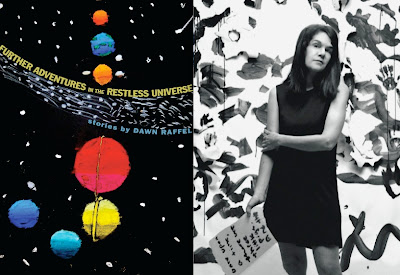Can we start with the Brothers Grimm and Hans Christian Anderson? I cannot remember a time when I didn’t want to read and write stories, and fairy tales still fascinate me. A few years ago, I had the good fortune to land a brief teaching gig in Russia. My students were amused to see me lugging around volumes of Russian fairy tales. I swiped a few ideas from them for Further Adventures. “Mighty Breakers of the Sea” is the collection’s curve ball story; while everything else is set in the Midwest or Manhattan, this one is sort of a warped Russian fairy tale that is also informed by the lives of the tsars’ wives. The latter tended not to end so well.
Describe one of the stories in your collection.
“The Air and Its Relatives” is seven pages but it took me years to find a way to get it on paper. I wanted to write about my father, who died suddenly without my having had a chance to say goodbye. I guess I was looking for a way to spend more time with him. In the story, I am a teenage bad driver taking us home from a visit to the planetarium in Chicago.
Most of what’s in the story didn’t happen—at least not in that order. Okay, I did flunk my driver’s test twice, but I never took out anyone’s taillights on the throughway. Still, the story is the closest I’ve come to capturing my father and my relationship with him, given that our view of our parents is always our own fiction. I pulled the story together with another device I lifted from Russian fairy tales: the repeated phrase “after a very long while, or maybe a short while.” That feels so true to me in terms of how memory works and how we experience the passage of time.
What do you think a good short story collection should deliver?
A good short story collection should deliver the same thing a good novel or play or painting does: a ticket to someplace new. It should ask you to view some quarter of the world, of yourself, in a new way. It should challenge assumptions. It should linger.
